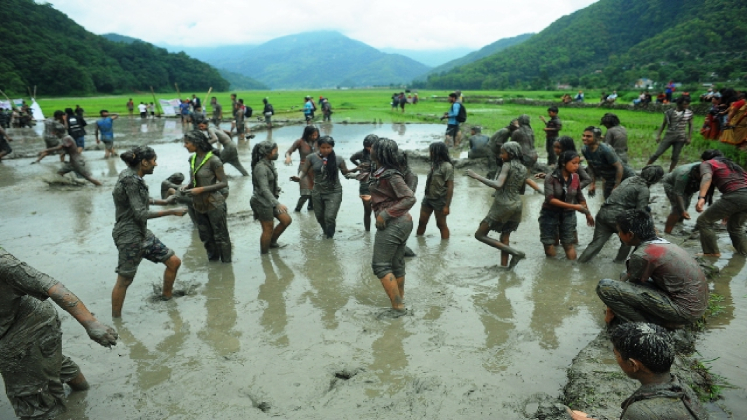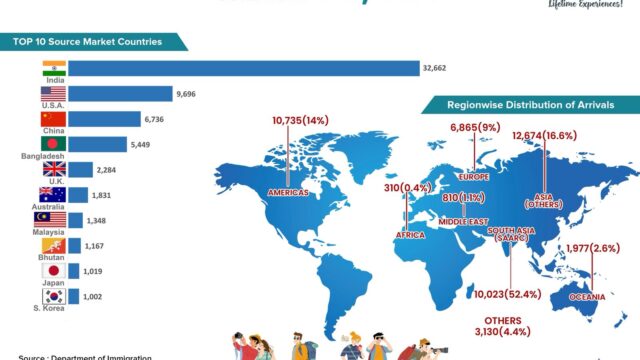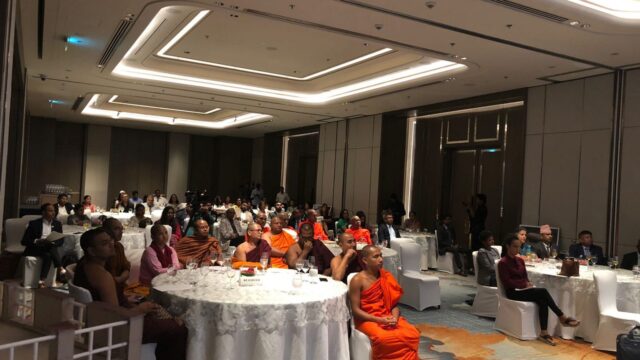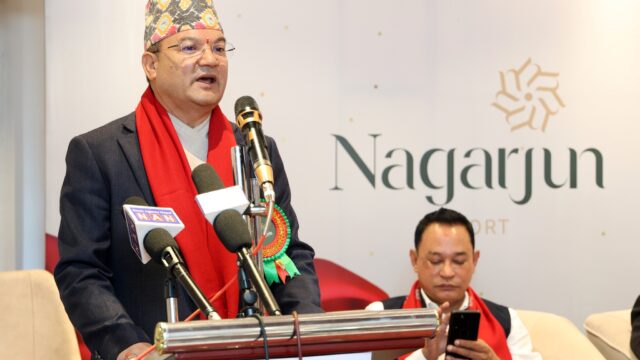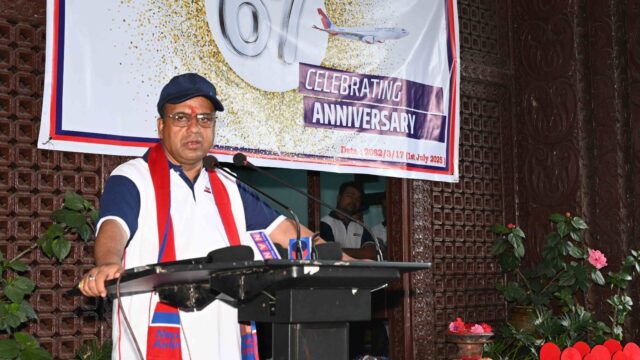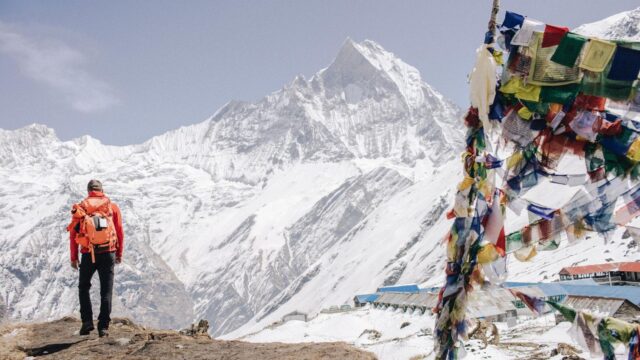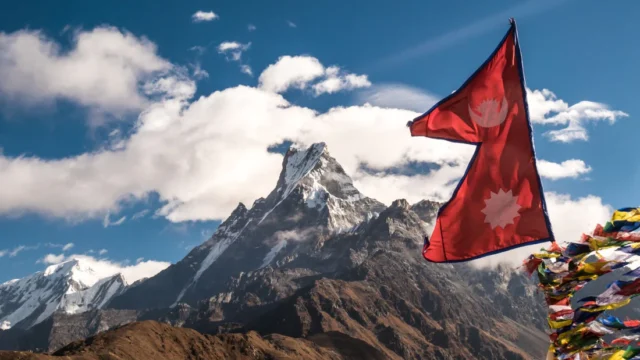Asare Ropain Festival, once a modest seasonal celebration, has evolved into a prominent tourism event that strategically addresses the off-season challenges faced by Pokhara during the monsoon months of June, July, and August. Traditionally considered an off-season for tourism due to the monsoon rains, the months of June, July, and August in Pokhara are now gaining new significance through the annual Asare Ropain Festival. This unique agro-cultural celebration has not only helped preserve Nepal’s traditional rice planting customs but is also emerging as a strategic initiative to boost domestic and international tourist arrivals during the low travel period.
Organized every year on Asar 15 by the Pokhara Tourism Council, the Asare Ropain Festival has now reached its 20th edition. Launched in 2061 B.S., the festival has become an iconic tourism event in Pokhara. The slogan “Pokhara for All Seasons” reflects the council’s mission to establish Pokhara as a year-round tourist destination.
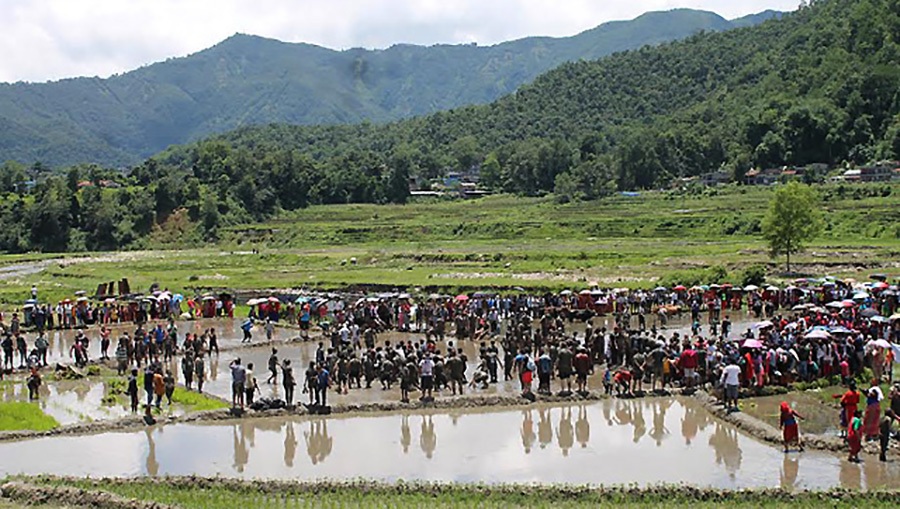
Agro-Tourism in the Monsoon: A Growing Trend
While monsoon is often considered unfavorable for tourism due to weather constraints and limited visibility for mountain views, the Ropain Festival has successfully turned this narrative around. Held during the peak of rice planting season, the festival offers a vibrant and muddy experience for tourists, where they can actively participate in rice plantation activities, engage in traditional games, and enjoy local hospitality.
According to Taranath Pahari, President of the Pokhara Tourism Council, the Asare Ropain Festival has helped extend the stay of both domestic and foreign tourists in Pokhara during the monsoon. “This festival has been a key factor in keeping tourists engaged and encouraging them to prolong their visit, even in what used to be considered an unfavorable time,” Pahari said.
Targeted Tourism Boost and Local Participation
Tourism entrepreneurs in Pokhara confirm that the festival has positively impacted the tourism business during the off-season. Some hotels and travel agencies have reported increased bookings and longer stays from tourists planning their trips around the festival dates.
This year, the 20th edition of the festival is being held at Gundetaal (Talbensi) in Pokhara Metropolitan City–26. The event is coordinated locally by the Shantipremi Ama Samuha (Peace-loving Mothers’ Group) and organized by the Pokhara Tourism Council, according to its General Secretary Jeevanraj Sapkota.
Sapkota highlighted that the festival has several objectives: promoting both internal and international tourism in Pokhara and Gandaki Province, contributing to the success of Pokhara Visit Year 2025, showcasing Nepal’s traditional farming techniques, and drawing attention to lesser-known destinations like Gundetaal and its surrounding areas.
Festival Highlights and Cultural Programs
The Asare Ropain Festival is packed with exciting and traditional activities, such as muddy relay races (Hile Daud), rice planting competitions, and a “Catch the Fish in the Mud” event. It also includes cultural programs, local food tastings, and the honoring of outstanding farmers to connect visitors with Nepal’s rural life.
Sapkota confirmed that this year’s festival expects the participation of around 250 foreign tourists from various countries, along with a significant number of Nepali visitors. “Even during the off-season, the festival has played a role in attracting tourists,” he noted, adding that feedback from local tourism businesses suggests tourists are increasingly extending their stays in Pokhara to take part in this immersive experience.
Strong Institutional Support for Sustainable Promotion
The festival enjoys institutional backing from key organizations, including the Ministry of Industry, Tourism, Forest and Environment of Gandaki Province and the Nepal Tourism Board, who serve as major promoters. Additionally, local bodies like Pokhara Metropolitan City, Ward No. 26 Office, and the Lekhnath Chamber of Commerce and Industry have partnered to ensure the festival’s success.
Local leaders are optimistic about the event’s long-term impact. Narendra Thapa, Ward Chairperson of Pokhara–26, believes the festival will make a lasting contribution to the tourism promotion of not only Gundetaal but the entire Lekhnath region. “This kind of cultural tourism initiative brings real value to our community, helps promote local destinations, and strengthens Pokhara’s image globally,” Thapa stated.

Merging Agriculture, Culture, and Tourism
The Asare Ropain Festival has evolved from a symbolic celebration of the rice planting season to a major tourism attraction that merges agriculture, culture, and tourism. It offers an authentic look into Nepalese rural life, helping visitors connect with the land, the people, and the rhythm of traditional agriculture.
With growing participation from foreigners and increasing interest from domestic travelers, the festival is setting an example of how cultural and agro-tourism can be effective in balancing seasonal tourism trends. By reviving traditions and turning them into meaningful experiences, the festival is breathing new life into the rainy season in Pokhara.
As the 20th edition comes to life at Gundetaal this year, the Asare Ropain Festival continues to prove that with creativity, collaboration, and cultural pride, even the off-season can become a thriving chapter in Nepal’s tourism calendar.
